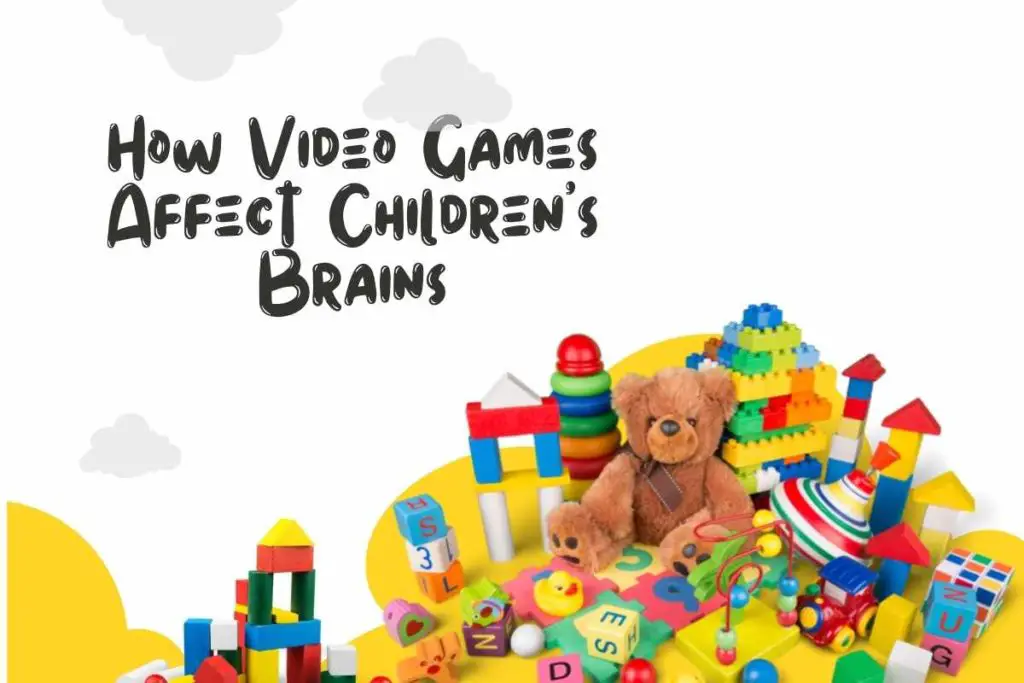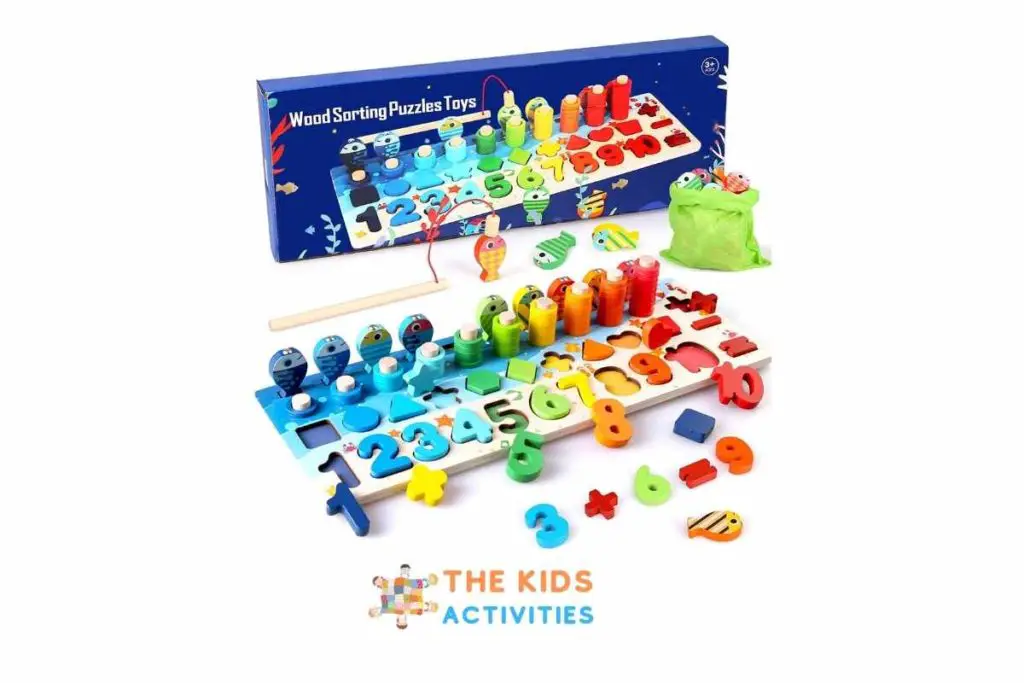How Video Games Affect Children’s Brains
It shouldn’t be hard to feel sympathetic toward the plight of video games. The medium has long been under attack, criticized throughout the eighties and nineties as a direct cause of violence, then later derided as a potential cause of mental disorders like addiction.
However, researchers have now found that video games may not only be good for our brains—they may also be essential to their development.
A recent article in New Scientist magazine discussed the work of Daphne Bavelier, a cognitive neuroscientist who studies how action video games affect brain function. According to her research, action games increase a player’s ability to see and remember objects on the periphery of his or her vision.
They also make players better able to process visual information quickly and efficiently—possibly even improving night vision in some cases.
Games Help Children Think On Their Feet
Video games help children think on their feet. Games are engaging and require active participation, which helps develop the cognitive function of executive function in the brain.
Executive function includes planning and organization, problem-solving skills, working memory, and self-control. Video games also help children to make and carry out a plan, develop problem-solving skills, practice leadership skills and encourage teamwork because they involve social interactions with others in the virtual world.
They improve motor skills as well as emotional intelligence because players have to deal with negative emotions (such as frustration) when playing these types of games.
They Learn To Make And Carry Out A Plan
Video games teach kids to be planners. Planning is a key component of problem-solving, leadership, teamwork, and learning in general.
If you want to solve a problem or learn something new, you have to make plans for how to do it. Video games are full of planning opportunities.
navigating through dangerous situations by carefully deciding which path to take; figuring out how much food and water you’ll need if you’re going on an adventure; inventing strategies that will help your team win the game.
The more opportunities kids have for planning in video games, the better they’ll be at planning outside of them as well!
They Develop Problem-solving Skills
If your child is a gamer, it’s likely that he or she has been developing problem-solving skills. In life, we all have to solve problems in order to reach our goals.
Playing video games helps children develop the ability to break down their challenges into smaller pieces and figure out how they can solve them step by step.
They also learn that trying different solutions until they find one that works is key to success!
The Practice Leadership
Games can help kids learn to take charge, make decisions, and be accountable.
Kids are learning to manage people and make sure everyone is working towards a common goal. They also learn how to delegate tasks, make decisions, and take responsibility for them.
In fact, a study from Stanford University showed that video games can improve problem-solving skills in children by more than 50%.
Games Encourage Teamwork
Video games can help children learn to work together, cooperate and communicate. These skills are important in life.
Games are often played as teams, with everyone having a role to play in order to win the game. This encourages players to think about how each individual on their team contributes and how they can all work together better.
Teamwork also involves learning how not just yourself but also others might do things differently than you do, which helps children learn that different people have different strengths and weaknesses.
Cooperative play teaches children that they have to work with others if they want their group or team to succeed — this is an important skill for later in life when we have jobs or careers where we need other people’s help.
How do Video Games Affect Children’s Learning?
Video games can help children learn to concentrate. Video games teach children to focus on something visually, which is an important skill for learning and staying focused.
A child who plays video games will be more likely to be able to pay attention in school and do well on tests if he or she already has good visual skills from playing video games.
Video games can also help children learn how to follow instructions because when a player starts out playing a game or level, there are usually instructions that tell him what he should do next in order to win the game (and these instructions may include things like “kill the monsters” or “collect points).
The player then needs good listening skills in order not only to understand these instructions but also to follow them correctly without making mistakes along the way. This helps him later on when he must listen carefully during class lectures at school or when someone gives him directions about where something should go.
Video games can also help improve problem-solving skills for children by giving them opportunities for trial-and-error experience solving problems within certain time limits or within certain parameters (such as collecting money before time runs out).
When players encounter challenges during gameplay they need creative thinking abilities so that they don’t give up too soon; instead of finding other ways around whatever obstacle might come between success and failure — this kind of problem-solving approach often transfers over into real world situations after repeated exposure over time.”
They Help Kids Learn To Manage Negative Emotions
There are lots of ways that video games can help children learn to manage their emotions.
For example, games can help them deal with anger and frustration in a safe way when they’re feeling it.
They may also be able to use the emotional states of their virtual characters as practice for real-life situations. When kids play games where enemies are defeated or obstacles overcome, this teaches them how to handle stressful situations in which they need to find solutions—and not just fly off the handle.
They Improve Motor Skills
Video games can help improve your child’s motor skills. Some examples of motor skills that video games improve are.
- Fine motor skills (the ability to use small muscles)
- Hand-eye coordination
- Problem-solving
You can help your child develop their fine motor skills by playing board games and doing activities like drawing, coloring, and origami with them!
Children With Adhd Can Benefit From Video Games
It’s no secret that attention deficit hyperactivity disorder (ADHD) is a common childhood condition. It can be difficult for children with ADHD to pay attention.
Focus their attention on tasks and stay on task, or ignore distractions. Video games may help your child develop these skills.
The reason why video games can benefit children with ADHD has to do with the way brains work when people play them: The areas of the brain that control attention are activated when you’re playing any game, whether it’s an everyday activity like making dinner or a video game-like Angry Birds.
This means that playing video games can actually improve your child’s ability to focus their attention—and this ability isn’t just helpful when they’re playing a game; it carries over into other aspects of life as well!
How do Video Games Affect The Brain Negatively?
Video games can be addictive. Some games are designed to be as addictive as possible so that you will keep playing them and pay money to progress further in the game.
This kind of thing is bad for children because they get addicted, and their brains become used to being rewarded when they play video games. This means that they are less likely to feel happy or satisfied if they don’t have access to a game or other electronic device that gives them rewards every few minutes (such as social media).
Violent video games can cause violent behavior in children and teens who play too much. The problem with this is that there isn’t much evidence yet about whether violent video game use leads directly to violence outside of the game itself.
however, it’s clear from research results that kids who have played violent video games tend not only toward aggression but also toward increased feelings of isolation from society at large–this contributes negatively both socially and psychologically for young people everywhere today!
Video gaming may affect your child’s ability to focus on a task such as schoolwork; if your child seems unmotivated at school then perhaps encourage interactions between him/herself and an activity that doesn’t require electronic devices such as reading books together etcetera…
Why Are Video Games Bad For Kids?
There are a number of reasons why video games should be limited for children. Video games can be addictive, violent, a waste of time and money, and a distraction from schoolwork and family time.
- Video Games Can Be Addicting
Playing video games can become an addiction that takes priority over other things in your child’s life—like schoolwork and friends—which may lead to poor grades or alienation from friends and family members.
This happens because the reward centers in the brain are triggered when you play video games in such a way that they become more important than anything else going on around you (see Resources). As with any kind of drug addiction, it quickly becomes something that is nearly impossible not to do just one more time…and then another one after that…and then again…
Are Video Games Bad For Children’s Brains?
No, they are not. Video games can teach children how to manage negative emotions and information, increase their focus and attention span, improve their spatial abilities and hand-eye coordination, enhance problem-solving skills, and boost self-confidence. For example.
Video games can help children with ADHD. Children who play video games have shown improved attention spans compared to those who do not play video games (1). In addition, kids who regularly play action-adventure games such as “Legend of Zelda: Ocarina of Time” tend to be more willing than others to try new activities (2).
This is because these types of video games require players to learn new skills in order to progress through the game – an attribute that builds creativity as well as perseverance in the face of difficulty or change.
Video games can help children with mental health problems such as depression or anxiety by improving their moods while offering them a form of social interaction (3). In fact, one study found that playing video games led to participants’ ratings on happiness levels over time than those who did not play video games at all!
Do Video Games Affect Intelligence?
While it’s true that video games are not an end in themselves, they can be a great way to keep yourself and your child entertained.
They can also help improve various skills and foster creativity. For example, video games often require players to solve problems using logic or problem-solving skills; this leads to improved memory and perception. In addition, many games require fast reactions, which improves reaction time as well as hand-eye coordination.
Multitasking is also important in many video games (think of how much multitasking goes into playing an FPS). This makes them an excellent tool for improving multitasking abilities—which are very useful in daily life!
As long as you’re careful about what types of games your kids play (some may be too violent), there’s no reason why gaming shouldn’t have positive effects on intelligence!
How Do Video Games Affect Mental Health?
Because of the way video games can have a positive impact on your brain and body, it’s easy to see why so many people are drawn to them. However, it’s also important to be aware of some of their drawbacks.
In his TED Talk “How video games help children learn,” Dr. Dimitri Christakis discusses how video games can be addictive and even lead to depression and anxiety (among other mental health issues). In addition, they can cause sleep problems in young children because they’re active at night.
this is called “social jetlag.” Another study found that playing violent first-person shooter games increases aggression in players over time by increasing activity in areas associated with aggression while they played the game—even after they stopped playing!
Conclusion
Parents should ask their kids to name some ways in which playing video games helps them in real life. They may not even realize how many skills they’ve gained through play. Games can help with concentration, confidence, and creativity too—not just teamwork, leadership, and problem-solving skills.


